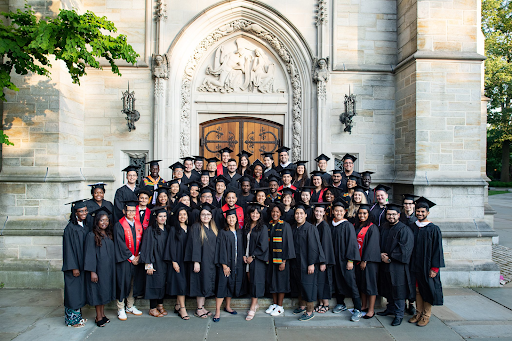College. The stage all students wait upon. If you’re a student, you’ve probably heard the question, “What college do you plan on going to?” or “What major will you choose?” After all, it’s a huge decision. How “right” your decision is will determine the rest of your life. Yet, in recent years, more and more high school graduates are skipping college. In fact, a recent study shows that only 61.8% of graduates enroll in college immediately. Thus, 32.9% of undergraduates do not even complete their degree program. But, why is this education chaos occurring, and how are colleges losing their relevance?

Adolescents tend to listen to people they look up to, even making decisions purely based on becoming somewhat like their idols. Some of these very influential individuals have publicly spoken out against college. For example, Elon Musk, one of the richest men in the world today, stated that young people don’t need college to learn. He even went as far as to say that to work at his company Tesla, you don’t need a college degree.
For high school students, who already don’t feel like taking on the challenge of college, hearing this can mean the final impetus in making their decision to skip college. It has been clearly proven that success without college is more than possible, with people such as Mark Zuckerberg (CEO of Facebook), or Bill Gates (founder of Microsoft), not having graduated from college.
In addition to role models not supporting the idea of college, tuition and college expenses are increasing annually. According to College Board Trends, tuition and fees for public four-year universities increased by 9% between 2011 and 2021. With students shying away from college, universities are being forced to change and rethink the way they function.
As technology overtakes our world, it makes sense that universities are making additions to major options that are becoming key in today’s society. A great example of this would be the newly developed degree of Human-Computer Interaction. This option is for students who are highly interested in the relationship between humans and computers. In this academic program, students learn about software, design, user interface, and the social and ethical considerations of technology. It’s a blend of sciences, those being sociology, psychology, and behavior science with computer and information sciences. If you’re interested in the effects of technology on society, Human-Computer Interaction would be a great fit for you. Schools that offer this major include Carnegie Mellon University, Stanford University, and Tufts University.
Equally, many schools are using technology to personalize learning experiences for students. This includes adaptive learning platforms, which use data and analytics to create customized learning paths for each student. Colleges are gradually adding new ways of learning, allowing students to develop a vast amount of skills, and increasingly gradually focusing on flourishing the skills that are on demand in the market. Consequently, colleges and universities are focusing on offering interdisciplinary programs that combine multiple fields of study. This approach helps students develop a broader range of skills and knowledge that can be used in a variety of industries, making students feel like their tuition is money well spent.
Overall, college education is evolving to meet the needs of students and the changing job market. This includes using technology, emphasizing interdisciplinary studies, focusing on experiential learning, emphasizing soft skills, and promoting diversity, equity, and inclusion. After all, college continues to be required in nearly 60 percent of all jobs in the U.S., and still remains a life stage individuals are enthused about, as they will be meeting hundreds of people, creating core memories, and and getting deep into a particular field of the progressively more competitive world.


